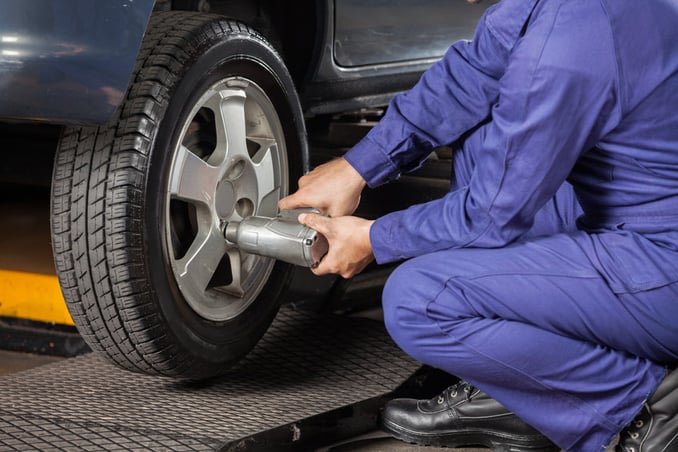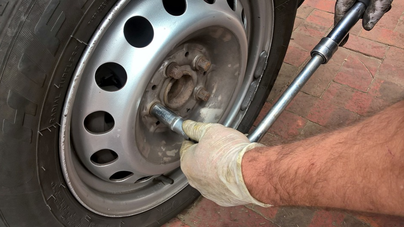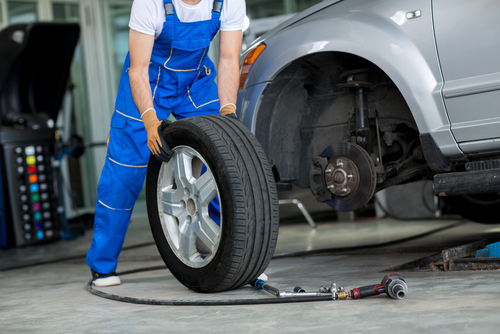Elevate Your Adventure: Count On Morris Tires for GMC Tires Service
Elevate Your Adventure: Count On Morris Tires for GMC Tires Service
Blog Article
Tire Service: The Effect of Climate Condition
When it concerns guaranteeing optimal efficiency and safety when traveling, understanding the influence of climate condition on tire service is vital. From scorching warm to icy roads, each weather aspect can dramatically influence tire functionality and overall driving experience. By delving right into the impacts of varying weather condition conditions on tires, drivers can obtain beneficial insights that might boost their lorry's efficiency and long life. In this conversation, we will certainly explore the detailed relationship between climate condition and tire service, losing light on the significance of weather-specific tire maintenance practices and considerations.
Heat and Tire Performance
When exposed to high temperature levels, tires experience changes in performance that can considerably affect car security and handling. The heat produced from extended driving or warm climate problems triggers the tire rubber to soften, bring about reduced step life and boosted wear. As the rubber ends up being softer, the tire's grip when driving reduces, affecting stopping ranges and total grip. In extreme instances, extreme warmth can even cause tire blowouts, posing a severe security risk to the lorry and its passengers.

Winter Effects
Cold climate conditions can have a significant impact on tire efficiency and safety. In cool weather, tires may likewise lose air pressure more quickly, which can affect handling and gas efficiency.
To minimize the effects of cool weather condition on tires, it is vital to regularly check tire stress and inflate them to the manufacturer's advised degrees. Using winter season or all-season tires designed for winter conditions can also improve grip and grip on icy or snowy roadways. Correct tire upkeep, including routine evaluations for wear and damage, ends up being even much more critical throughout chillier months to ensure ideal performance and security.
Rainy Conditions Effect
Tires with worn-out footsteps are a lot more prone to hydroplaning, where a layer of water constructs up in between the road and the tire surface area, leading to loss of traction. To battle this, motorists must on a regular basis inspect their tires for appropriate step depth and take into consideration investing in tires especially created for wet problems.
Moreover, wet weather condition can additionally reduce visibility, making it testing for drivers to see the road in advance clearly (GMC Tire Service). In such conditions, it is necessary to readjust driving rates accordingly and preserve a risk-free adhering to range to enable unexpected stops. Correctly inflated tires can additionally help in maintaining control on damp roads by offering better handling and hold
Snow and Tire Security
Snow-covered roadways position one-of-a-kind challenges for drivers, stressing the value of proper tire option and upkeep. When driving in snowy conditions, having the ideal tires can make a significant distinction in security and why not check here efficiency. Winter season tires are designed with special rubber substances and walk patterns to offer far better traction on snow and ice compared to all-season tires. The much deeper treads and sipes of winter season tires help grasp the road much better, minimizing the threat of gliding and slipping.

It is crucial to adhere to supplier guidelines when setting up and making use of tire chains to prevent damages to the tires and car. By picking the ideal tires, keeping proper inflation, and considering additional grip aids like tire chains, motorists can enhance their safety when navigating snow-covered roadways.
Weather-Related Tire Maintenance
When encountered with different climate condition, proper tire upkeep comes to be a crucial element of automobile security and performance. Weather-related tire maintenance incorporates a variety of techniques intended at guaranteeing optimal tire function and longevity in various weather condition situations. One vital facet of weather-related tire maintenance is tire pressure guideline. Fluctuating temperature levels can create tire pressure to vary, influencing grip and fuel performance. Routinely readjusting and examining tire stress according to producer referrals is essential for risk-free driving in transforming climate condition. In addition, tire step deepness plays a substantial function in managing different climate components. Tires with adequate step depth offer better grip on damp or icy roadways, websites reducing the threat of hydroplaning or skidding. When tread wear reaches a particular depth is vital for preserving grip and stability in unfavorable climate, checking tire tread routinely and replacing tires. By prioritizing weather-related tire maintenance, vehicle drivers can improve safety, improve automobile efficiency, and lengthen the lifespan of their tires.
Final Thought
Finally, climate conditions have a substantial influence on tire efficiency and safety and security. From heat influencing tire stress and use to chilly climate reducing grip, it is necessary to consider the weather when maintaining and utilizing tires. Stormy problems can lower grasp and cause hydroplaning, while snow can boost the danger of crashes if tires are not effectively furnished. Weather-related tire upkeep is essential in making certain ideal efficiency and safety and security when driving.
In this conversation, we will explore the complex relationship between weather problems and tire service, dropping light on the significance of weather-specific tire maintenance practices and factors to consider.

Report this page